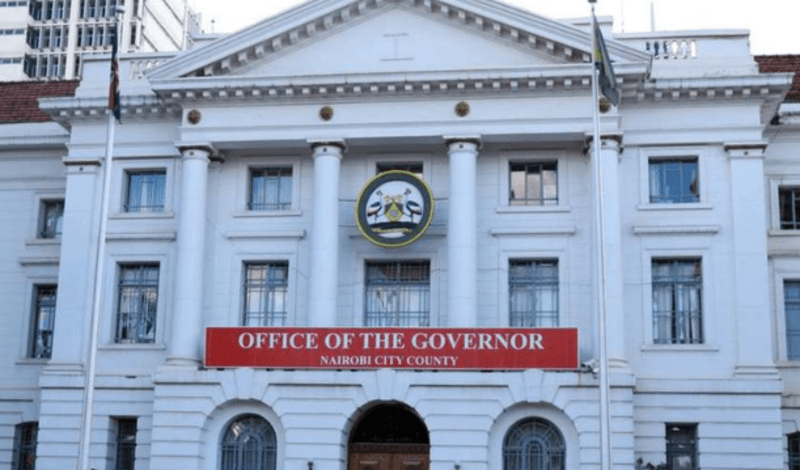Nairobi County hits record revenue of Sh12.8b since devolution

According to data from City Hall, Sh12.8 billion is the highest achieved by City Hall since devolution.
Nairobi County has marked a milestone as its source revenue hit Sh12.8 billion in the last financial year 2023-2024.
However, it was against a target of Sh20.06 billion, which was part of the Sh40.7 billion county budget.
More To Read
- Businesses reeling: Nairobi faces massive losses after June 25 memorial unrest
- Nairobi unveils Bill to give public hospitals more autonomy and improve service delivery
- Scars of protest: Sunbeam traders still await justice following 2024 fire tragedy during anti-tax demos
- Governor Johnson Sakaja distances self, Nairobi County government from goons seen backing police during protests
- Sakaja's administration spends billions on legal fees, garbage as development lags
- Governor Sakaja condemns violence in City during protests, calls for arrests
According to data from City Hall, Sh12.8 billion is the highest achieved by City Hall since devolution.
Addressing the media on Thursday, Nairobi Governor Johnson Sakaja said digitisation of revenue streams played a huge role in the achievement.
"Nairobi broke the collection record due to digitisation and reduction of wastages in the collection system," he said.
In the last financial year, Nairobi had a target for rates of Sh5.6 billion, single business permits Sh3 billion, parking fees Sh3 billion, building permits Sh1.8 billion, billboard and adverts Sh1.2 billion.
Others include markets Sh538.8 million, fire services Sh450 million, house rents Sh600 million, food handlers certificates Sh250 million, liquor licences Sh250 million and other income Sh1.48 billion.
However, what was collected to achieve the Sh12.8 billion was Sh3.4 billion collected for rates, single business permits Sh2.3 billion, parking fees Sh1.9 billion, building permits Sh1.2 billion, billboard and adverts Sh661 million.
Others include markets Sh214 million, fire services Sh58 million, house rents Sh503 million, food handlers certificates Sh106 million, liquor licences Sh270 million and other income Sh839 million.
Sh1.04 billion was collected from county hospitals while Sh26 million was from Nairobi Funeral Home (city mortuary).
Sakaja noted that the anti-government protests which had its centre in Nairobi affected the revenue collection.
"The destroyed business and interruption of service denied the county the opportunity to hit the Sh13 billion record," he said.
Looking at the previous years, in 2021-22 Sh8.9 billion was collected while Sh9.7 billion was collected in 2020- 21.
The lowest was collected was Sh8.5 billion in 2019-20, which was half the targeted Sh17.31 billion.
The 2018-19 financial year was no better, as the revenue was Sh10.17 billion, Sh5 billion less than the target of Sh15.29 billion.
Nairobi has not met its revenue targets since 2013 despite the digitisation of over 136 of its revenue streams.
This has been blamed on unreliable rates, low collection from single business permits and inefficient collection of parking fees.
In 2017-18, Sh10.17 billion was collected against a target of Sh17.23 billion. City Hall was set to raise Sh19.57 billion in 2016-17 but only collected Sh10.93 billion.
The highest amount ever collected was Sh11.71 billion in 2015-16, which was still far short of the Sh15.3 billion target.
In 2014-15, Sh11.6 billion was collected against a revised budget of Sh13.2 billion, while in 2013-14, Sh9.33 billion was realised against a target of Sh12.13 billion.
Revenue streams are typically used to produce revenue on their own.
The six key own-source revenue streams include parking fees, rates, single business permits, house rents, building permits and, billboards and adverts accounting for close to 80 per cent of the county's annual own-source revenue.
Top Stories Today










































